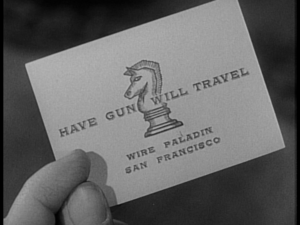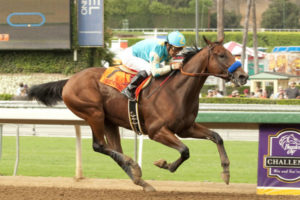 I was on the trial team that won a $146 million verdict in Pecos, Texas last week;here is the Dallas Morning News’s recent story on the case.
I was on the trial team that won a $146 million verdict in Pecos, Texas last week;here is the Dallas Morning News’s recent story on the case.
Monthly Archives: November 2016
 Plaintiffs alleged that the government of Antigua was complicit in Allen Stanford’s fraudulent scheme; it defended under the Foreign Sovereign Immunities Act. With respect to liabilty under the “commercial activity” exception to the Act, the Fifth Circuit found too attenuated a connection to the United States. As to the scheme itself, “[w]hile Antigua may have helped facilitate Stanford’s sale of the fraudulent CDs, Stanford’s criminal activity served as an intervening act interrupting the causal chain between Antigua’s actions and any effect on investors.” And as to a more specific claim based on Antigua’s failure to repay loans to Stanford, “the financial loss in this case was not directly felt by Plaintiffs, who are investors and customers of Stanford . . . The financial loss due to Antigua’s failure to repay the loans was most directly felt by Stanford who was the actual lender in the loan transactions.” Frank v. Commonwealth of Antigua & Barbuda, No. 15-10788 (Nov. 22, 2016).
Plaintiffs alleged that the government of Antigua was complicit in Allen Stanford’s fraudulent scheme; it defended under the Foreign Sovereign Immunities Act. With respect to liabilty under the “commercial activity” exception to the Act, the Fifth Circuit found too attenuated a connection to the United States. As to the scheme itself, “[w]hile Antigua may have helped facilitate Stanford’s sale of the fraudulent CDs, Stanford’s criminal activity served as an intervening act interrupting the causal chain between Antigua’s actions and any effect on investors.” And as to a more specific claim based on Antigua’s failure to repay loans to Stanford, “the financial loss in this case was not directly felt by Plaintiffs, who are investors and customers of Stanford . . . The financial loss due to Antigua’s failure to repay the loans was most directly felt by Stanford who was the actual lender in the loan transactions.” Frank v. Commonwealth of Antigua & Barbuda, No. 15-10788 (Nov. 22, 2016).
 OneBeacon Ins. Co. v. Welch & Assocs. involved insurance coverage for an attorney malpractice claim, arising for an exclusion for knowledge about “any actual or alleged act, error, omission or breach of duty arising out of the rendering or the failure to render professional legal services.” Since even the carrier agreed that “[o]n its face, this covers every single thing an attorney does or does not do, wrongful or not,” the Fifth Circuit found that the exclusion could not be applied literally without making the contract illusory. Focusing on the alleged “wrongful act,” the Court found that the relevant lawyer’s awareness of a discovery order and potential dispute was not equivalent to knowledge that a rare death-penalty sanction award would result. The Court also sustained an award of additional violations for an intentional violation of the Insurance Code with respect to the handling of the claim. No. 15-20402 (Nov. 14, 2016).
OneBeacon Ins. Co. v. Welch & Assocs. involved insurance coverage for an attorney malpractice claim, arising for an exclusion for knowledge about “any actual or alleged act, error, omission or breach of duty arising out of the rendering or the failure to render professional legal services.” Since even the carrier agreed that “[o]n its face, this covers every single thing an attorney does or does not do, wrongful or not,” the Fifth Circuit found that the exclusion could not be applied literally without making the contract illusory. Focusing on the alleged “wrongful act,” the Court found that the relevant lawyer’s awareness of a discovery order and potential dispute was not equivalent to knowledge that a rare death-penalty sanction award would result. The Court also sustained an award of additional violations for an intentional violation of the Insurance Code with respect to the handling of the claim. No. 15-20402 (Nov. 14, 2016).
 Robert dePerrodil successfully sued for the injuries he suffered when a wave hit the boat he was on. He recovered damages based upon his plan to work until age 75; the defendant argued that the “court erred by using the plaintiff’s stated retirement goal, rather than the BLS average.” The Fifth Circuit affirmed, noting that dePerrodil had a “‘very reasonable’ goal, considering his medical history, work history, and future medical prognosis,” distinguishing other cases in the area that turned on more vague testimony. Perrodil v. Bozovic Marine, Inc., No. 16-30009 (Nov. 17, 2016, unpublished).
Robert dePerrodil successfully sued for the injuries he suffered when a wave hit the boat he was on. He recovered damages based upon his plan to work until age 75; the defendant argued that the “court erred by using the plaintiff’s stated retirement goal, rather than the BLS average.” The Fifth Circuit affirmed, noting that dePerrodil had a “‘very reasonable’ goal, considering his medical history, work history, and future medical prognosis,” distinguishing other cases in the area that turned on more vague testimony. Perrodil v. Bozovic Marine, Inc., No. 16-30009 (Nov. 17, 2016, unpublished).
 Last year, the Fifth Circuit certified these two questions to the Texas Supreme Court:
Last year, the Fifth Circuit certified these two questions to the Texas Supreme Court:
1. Does a lender or holder violate Article XVI, Section 50(a)(6)(Q)(vii) of the Texas Constitution, becoming liable for forfeiture of principal and interest, when the loan agreement incorporates the protections of Section 50(a)(6)(Q)(vii), but the lender or holder fails to return the cancelled note and release of lien upon full payment of the note and within 60 days after the borrower informs the lender or holder of the failure to comply?
2. If the answer to Question 1 is “no,” then, in the absence of actual damages, does a lender or holder become liable for forfeiture of principal and interest under a breach of contract theory when the loan agreement incorporates the protections of Section 50(a)(6)(Q)(vii), but the lender or holder, although filing a release of lien in the deed records, fails to return the cancelled note and release of lien upon full payment of the note and within 60 days after the borrower informs the lender or holder of the failure to comply?
The T exas Supreme Court answered both questions “no” in Garofolo v. Ocwen Loan Servicing, No. 15-0437 (Tex. May 20, 2016). Accordingly, the Fifth Circuit affirmed the dismissal of the plaintiff’s contract claim in Garofolo v. Ocwen Loan Servicing, No. 14-51156 (Oct. 3, 2016, unpublished).
exas Supreme Court answered both questions “no” in Garofolo v. Ocwen Loan Servicing, No. 15-0437 (Tex. May 20, 2016). Accordingly, the Fifth Circuit affirmed the dismissal of the plaintiff’s contract claim in Garofolo v. Ocwen Loan Servicing, No. 14-51156 (Oct. 3, 2016, unpublished).
 Color Star Growers (a wholesale distributor of flowers) went into bankruptcy; their lenders sued the Verbeeks in Texas state court, alleging that they fraudulently induced the loans to Color Star. The Verbeeks sought a defense from the D&O carrier for their company. The insurer successfully obtained summary judgment based on the policy’s “Creditor Exclusion” and the Fifth Circuit affirmed. The exclusion said: “The Insurer shall not be liable to pay any Loss on account of, and shall not be obligated to defend, any Claim brought or maintained by or on behalf of . . . [a]ny creditor of a company or organization in the creditor’s capacity as such, whether or not a bankruptcy or insolvency proceeding involving the company or organization has been commenced.” Rejecting the Verbeeks’ arguments that the state court plaintiffs were suing as “administrative agents” or “investors” rather than creditors, the Court observed that “the alleged facts giving rise to the underlying litigation relate entirely to the state court plaintiffs’ loan agreements with Color Star . . . .” The Court went on to affirm as to the duty to indemnify as well. Marke Am. Ins. Co. v. Verbeek, No. 15-51099 (Sept. 27, 2016, unpublished).
Color Star Growers (a wholesale distributor of flowers) went into bankruptcy; their lenders sued the Verbeeks in Texas state court, alleging that they fraudulently induced the loans to Color Star. The Verbeeks sought a defense from the D&O carrier for their company. The insurer successfully obtained summary judgment based on the policy’s “Creditor Exclusion” and the Fifth Circuit affirmed. The exclusion said: “The Insurer shall not be liable to pay any Loss on account of, and shall not be obligated to defend, any Claim brought or maintained by or on behalf of . . . [a]ny creditor of a company or organization in the creditor’s capacity as such, whether or not a bankruptcy or insolvency proceeding involving the company or organization has been commenced.” Rejecting the Verbeeks’ arguments that the state court plaintiffs were suing as “administrative agents” or “investors” rather than creditors, the Court observed that “the alleged facts giving rise to the underlying litigation relate entirely to the state court plaintiffs’ loan agreements with Color Star . . . .” The Court went on to affirm as to the duty to indemnify as well. Marke Am. Ins. Co. v. Verbeek, No. 15-51099 (Sept. 27, 2016, unpublished).
 Hays, a cardiologist suffering from epilepsy, sued HCA for wrongful discharge as a result of mishandling his illness. The Fifth Circuit agreed that his tortious interference claim against HCA had to be arbitrated, because its viability depended on reference to the employment agreement between him and the specific hospital where he worked. It also affirmed on the theory of “intertwined claims estoppel,” making an Erie guess that the Texas Supreme Court would recognize this theory, and concluding that “Hays’s current efforts to distinguish amongst defendants and claims are the archetype of strategic pleading intended to avoid the arbitral forum, precisely what intertwined claims estoppel is designed to prevent.” Hays v. HCA Holdings, No. 15-51002 (Sept. 29, 2016).
Hays, a cardiologist suffering from epilepsy, sued HCA for wrongful discharge as a result of mishandling his illness. The Fifth Circuit agreed that his tortious interference claim against HCA had to be arbitrated, because its viability depended on reference to the employment agreement between him and the specific hospital where he worked. It also affirmed on the theory of “intertwined claims estoppel,” making an Erie guess that the Texas Supreme Court would recognize this theory, and concluding that “Hays’s current efforts to distinguish amongst defendants and claims are the archetype of strategic pleading intended to avoid the arbitral forum, precisely what intertwined claims estoppel is designed to prevent.” Hays v. HCA Holdings, No. 15-51002 (Sept. 29, 2016).
 The high-profile injunction case of Defense Distributed, Inc. v. U.S. Dep’t of State involved the federal government’s effort to prevent the online distribution of 3D printing files for the critical “lower receiver” component of the AR-15 rifle. The district court declined to grant a preliminary injunction against enforcement of the relevant laws and the Fifth Circuit affirmed. In an observation broadly applicable to litigation about online postings, the Court noted: “If we reverse the district court’s denial and instead grant the preliminary injunction, Plaintiffs-Appellants would legally be permitted to post on the internet as many . . . files as they wish . . . [which] would remain online essentially forever, hosted by foreign websites such as the Pirate Bay and freely available worldwide.” A thorough and strongly-worded dissent took issue with the First Amendment ramifications of the panel opinion; a petition for en banc rehearing has been filed and is pending as of this post. No. 15-50759 (Sept. 20, 2016).
The high-profile injunction case of Defense Distributed, Inc. v. U.S. Dep’t of State involved the federal government’s effort to prevent the online distribution of 3D printing files for the critical “lower receiver” component of the AR-15 rifle. The district court declined to grant a preliminary injunction against enforcement of the relevant laws and the Fifth Circuit affirmed. In an observation broadly applicable to litigation about online postings, the Court noted: “If we reverse the district court’s denial and instead grant the preliminary injunction, Plaintiffs-Appellants would legally be permitted to post on the internet as many . . . files as they wish . . . [which] would remain online essentially forever, hosted by foreign websites such as the Pirate Bay and freely available worldwide.” A thorough and strongly-worded dissent took issue with the First Amendment ramifications of the panel opinion; a petition for en banc rehearing has been filed and is pending as of this post. No. 15-50759 (Sept. 20, 2016).
 On September 16, 2013, Defendants obtained a magistrate judge’s report that recommended dismissal of Plaintiffs’ complaint. On September 18, Defendants served – but did not file – a motion for sanctions, stating that it would not be filed until the 21-day Rule 11(c)(2) “safe harbor” period passed. Plaintiffs objected to the report on September 30; Defendants filed their motion on October 18; and after adoption of the report and further briefing, the district imposed $25,000 in sanctions in mid-2014. The Fifth Circuit rejected Plaintiffs’ challenge to the sanction based on the safe harbor period, reasoning — “Given that Plaintiffs could have formally or informally disavowed their claims during the 21-day period after Defendants served their motion, but instead elected to continue pursuing their claims, the district court did not abuse its discretion in rejecting Plaintiffs’ ‘safe harbor’ argument.” Margetis v. Ferguson, No. 16-40563 (Nov. 10, 2016, unpublished).
On September 16, 2013, Defendants obtained a magistrate judge’s report that recommended dismissal of Plaintiffs’ complaint. On September 18, Defendants served – but did not file – a motion for sanctions, stating that it would not be filed until the 21-day Rule 11(c)(2) “safe harbor” period passed. Plaintiffs objected to the report on September 30; Defendants filed their motion on October 18; and after adoption of the report and further briefing, the district imposed $25,000 in sanctions in mid-2014. The Fifth Circuit rejected Plaintiffs’ challenge to the sanction based on the safe harbor period, reasoning — “Given that Plaintiffs could have formally or informally disavowed their claims during the 21-day period after Defendants served their motion, but instead elected to continue pursuing their claims, the district court did not abuse its discretion in rejecting Plaintiffs’ ‘safe harbor’ argument.” Margetis v. Ferguson, No. 16-40563 (Nov. 10, 2016, unpublished).
 The NLRB consistently holds that an agreement requiring arbitration of individual claims (and thus foreclosing class actions) violates federal labor law; the Fifth Circuit consistently reverses the NLRB on this point. After again reversing the NLRB and citing the Circuit’s “rule of orderliness” about deference to prior panel decisions, the Court noted the NLRB’s remarkably candid litigation position: “The Board concedes that this court has squarely rejected both of those decisions, and that our precedents necessitate rejecting its arguments here. The Board further acknowledges that it seeks to manufacture a circuit split in order to ‘facilitate Supreme Court review.'” Employers Resource v. NLRB, No. 16-60034 (Nov. 1, 2016, unpublished).
The NLRB consistently holds that an agreement requiring arbitration of individual claims (and thus foreclosing class actions) violates federal labor law; the Fifth Circuit consistently reverses the NLRB on this point. After again reversing the NLRB and citing the Circuit’s “rule of orderliness” about deference to prior panel decisions, the Court noted the NLRB’s remarkably candid litigation position: “The Board concedes that this court has squarely rejected both of those decisions, and that our precedents necessitate rejecting its arguments here. The Board further acknowledges that it seeks to manufacture a circuit split in order to ‘facilitate Supreme Court review.'” Employers Resource v. NLRB, No. 16-60034 (Nov. 1, 2016, unpublished).
 A steel-hulled tugboat, owned by Marquette, allided with the fiberglass-hulled SES Ekwata, rendering the Ekwata unusable. In the resulting litigation, the plaintiff won damages and an award of sanctions under the district court’s inherent power. On appeal, “Marquette asserts that the fee award was unwarranted because Marquette had a good faith basis to challenge the quantum of damages and thus in proceeding through a trial. But even if true, this fact did not justify Marquette’s intransigence on liability or the means by which Marquette defended [Plainitff’s] damages claim—namely, one expert who, according to the
A steel-hulled tugboat, owned by Marquette, allided with the fiberglass-hulled SES Ekwata, rendering the Ekwata unusable. In the resulting litigation, the plaintiff won damages and an award of sanctions under the district court’s inherent power. On appeal, “Marquette asserts that the fee award was unwarranted because Marquette had a good faith basis to challenge the quantum of damages and thus in proceeding through a trial. But even if true, this fact did not justify Marquette’s intransigence on liability or the means by which Marquette defended [Plainitff’s] damages claim—namely, one expert who, according to the
district court’s findings, opined on value ‘without including any comparables, without considering the equipment on the vessel, without an accurate description of the vessel, and without reliable underlying information” and a second expert who, according to the district court’s findings, “not only failed to correct the glaringly incorrect information set forth in [the first expert’s] report, but incorporated it into his own.” Accordingly, the Fifth Circuit affirmed. Moench v. Marquette Transp. Co. (revised October 13, 2016).
 Michael Swoboda sued Continental Enterprises, claiming that it conducted an investigation into alleged trademark infringement led to his wrongful discharge. He sought the production of documents that Continental alleged were protected as work product. The district court allowed the discovery and denied the intervention by Heckler & Koch, the gunmaker whose rights about the G36 submachine gun (above) were at issue and had retained Continental.
Michael Swoboda sued Continental Enterprises, claiming that it conducted an investigation into alleged trademark infringement led to his wrongful discharge. He sought the production of documents that Continental alleged were protected as work product. The district court allowed the discovery and denied the intervention by Heckler & Koch, the gunmaker whose rights about the G36 submachine gun (above) were at issue and had retained Continental.
The Fifth Circuit reversed, holding: “Continental’s work product privilege argument was overruled because Continental is a company that engages in investigative work, and the district court concluded that the discovery that Swoboda sought was produced in Continental’s ordinary course of business, i.e., in the course of a Continental investigation. HK is a gun manufacturer. Investigations are not a part of HK’s ordinary course of business. Some of the discovery that Swoboda sought was, from HK’s perspective, prepared in anticipation of litigation. We have held that an applicant-intervenor should be allowed to intervene when it ‘has a defense not available to the present defendant.’ HK has a defense unavailable to Continental, and it should have been allowed to present that defense in the district court.” Swoboda v. Manders, No. 16-30074 (Oct. 31, 2016, unpublished).
 The parties to McCloskey v. McCloskey disputed whether a debt was non-dischargeable as a child support obligation. Rejecting the application of the somewhat protean doctrine of judicial estoppel, the Fifth Circuit held: “Bankruptcy courts must ‘look beyond the labels which state courts—and even parties themselves—give obligations which debtors seek to discharge.’ A party may argue in bankruptcy
The parties to McCloskey v. McCloskey disputed whether a debt was non-dischargeable as a child support obligation. Rejecting the application of the somewhat protean doctrine of judicial estoppel, the Fifth Circuit held: “Bankruptcy courts must ‘look beyond the labels which state courts—and even parties themselves—give obligations which debtors seek to discharge.’ A party may argue in bankruptcy  court that an obligation constitutes support even if she has urged to the contrary in state court. Therefore, appellees are not judicially estopped from bringing this claim.” No. 16-20079 (Oct. 31, 2016, unpublished). (Compare the recent case of Galaz v. Katona, which applied judicial estoppel in a bankruptcy case based on inconsistent statements made in earlier state court litigation about ownership interests. No. 15-50919 (Oct. 28, 2016, unpublished).
court that an obligation constitutes support even if she has urged to the contrary in state court. Therefore, appellees are not judicially estopped from bringing this claim.” No. 16-20079 (Oct. 31, 2016, unpublished). (Compare the recent case of Galaz v. Katona, which applied judicial estoppel in a bankruptcy case based on inconsistent statements made in earlier state court litigation about ownership interests. No. 15-50919 (Oct. 28, 2016, unpublished).
 Cal Dive International sued Schmidt (a commercial diver), and Edwards (Schmidt’s attorney in a previous personal injury suit against Cal Dive), alleging that Schmidt had misrepresented his injuries, and seeking restitution of contingent fees paid to Edwards. Cal Dive specifically alleged that it did not believe Edwards knew of the purported fraud. Edwards sought coverage for defense costs, and the Fifth Circuit reversed a judgment in his favor: “Cal Dive’s complaint, for which Edwards seeks defense from Continental, contains no allegations against Edwards, save for his receipt of settlement funds in the nature of attorney’s fees as a result of his client’s alleged fraud. Acts or omissions in the rendering of legal services by Edwards to his client, Schmidt, are simply not at issue.” Edwards v. Continental Casualty Co., No. 15-30827 (Nov. 2, 2016).
Cal Dive International sued Schmidt (a commercial diver), and Edwards (Schmidt’s attorney in a previous personal injury suit against Cal Dive), alleging that Schmidt had misrepresented his injuries, and seeking restitution of contingent fees paid to Edwards. Cal Dive specifically alleged that it did not believe Edwards knew of the purported fraud. Edwards sought coverage for defense costs, and the Fifth Circuit reversed a judgment in his favor: “Cal Dive’s complaint, for which Edwards seeks defense from Continental, contains no allegations against Edwards, save for his receipt of settlement funds in the nature of attorney’s fees as a result of his client’s alleged fraud. Acts or omissions in the rendering of legal services by Edwards to his client, Schmidt, are simply not at issue.” Edwards v. Continental Casualty Co., No. 15-30827 (Nov. 2, 2016).
 The defendant pharmacy in an FCA case provided “PPDs” — prompt payment discounts; the plaintiff alleged that they were intended to induce Medicare and Medicaid referrals. The Fifth Circuit disagreed, holding: “At best, the evidence supports a finding that Omnicare did not want unresolved settlement negotiations to
The defendant pharmacy in an FCA case provided “PPDs” — prompt payment discounts; the plaintiff alleged that they were intended to induce Medicare and Medicaid referrals. The Fifth Circuit disagreed, holding: “At best, the evidence supports a finding that Omnicare did not want unresolved settlement negotiations to
negatively impact its contract negotiations with  [skilled nursing facility] clients and was, likewise, avoiding confrontational collection practices . . . . Although Omnicare may have hoped for Medicare and Medicaid referrals, absent any evidence that Omnicare designed its settlement negotiations and debt collection practice to induce such referrals, Relator cannot show an [anti-kickback statute] violation.” Ruscher v. Omnicare, Inc., No. 15-20629 (Oct. 28, 2016).
[skilled nursing facility] clients and was, likewise, avoiding confrontational collection practices . . . . Although Omnicare may have hoped for Medicare and Medicaid referrals, absent any evidence that Omnicare designed its settlement negotiations and debt collection practice to induce such referrals, Relator cannot show an [anti-kickback statute] violation.” Ruscher v. Omnicare, Inc., No. 15-20629 (Oct. 28, 2016).
 In Marshall v. Hunter, a removed action, the Fifth Circuit addressed a notice of appeal from a state court ruling made before ruling about personal jurisdiction. The Court declined to hear the appeal, saying: “while state court orders and rulings remain in effect upon removal, they do not become appealable orders of the district court until the district court adopts them as its own.” No. 16-20646 (Oct. 20, 2016, unpublished).
In Marshall v. Hunter, a removed action, the Fifth Circuit addressed a notice of appeal from a state court ruling made before ruling about personal jurisdiction. The Court declined to hear the appeal, saying: “while state court orders and rulings remain in effect upon removal, they do not become appealable orders of the district court until the district court adopts them as its own.” No. 16-20646 (Oct. 20, 2016, unpublished).